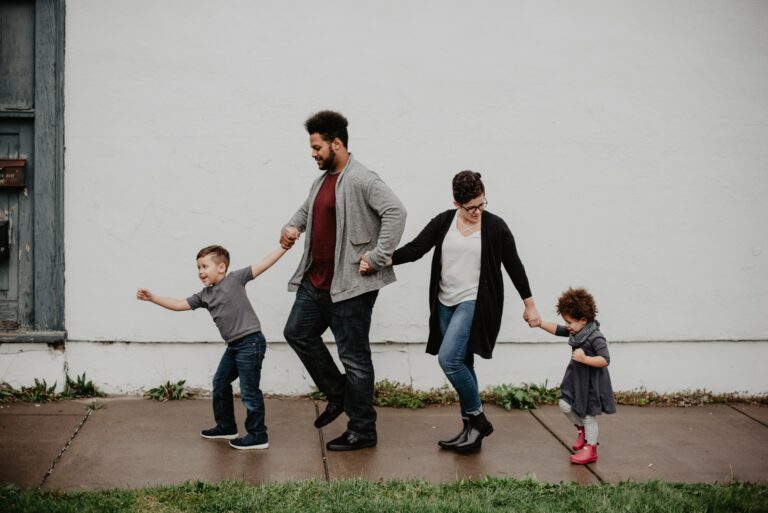Congratulations on your new bundle of joy! As you celebrate this life-changing moment, you’ll also face some challenges, especially during bedtime. Although babies spend a lot of time sleeping, they do so in short intervals. Their random sleep-wake patterns will inevitably interfere with your established cycle. Since their bodies are yet to differentiate between day and night, you’ll also have to wake up frequently.
Sleep Tips to Prevent Exhaustion for New Parents
The following tips will help you and baby sleep better during this exciting but testing period:
Establish A New Sleep Schedule
Make the most out of your new situation by sleeping when the baby sleeps. Try your best to perform other tasks when they’re awake and calm. This will give you enough time to rest, even if it will come in the form of 30-minute naps. For this method to be fully effective, you must be ready to catch your forty winks as soon as your baby sleeps.
Create A Bedtime Ritual
Though your newborn can’t talk just yet, you can still communicate through cues. Having a pre-nap routine prepares them for sleep. With time, they’ll come to associate certain actions with bedtime. Examples are a diaper change, changing into a cozy outfit before feeding, and a soothing bedtime story. Avoid the temptation of sharing a bed. Both of you will sleep more soundly if you place the baby in a crib and retire to your bed.
Let Technology Help You
You’ll rest easy if you have a baby monitor installed. It allows you to check up on your newborn without physically getting out of bed. Not every sound they make while sleeping indicates discomfort. You could also interfere with their sleep if you constantly walk up to the crib to check on them. Other helpful gadgets include a vibrating bassinet, Owlet smart sock, and soothing LED night light.
Share Responsibilities
Alternating baby duties with your partner makes the process less exhausting. It allows you some minutes of uninterrupted rest. You can use this time to recharge as your spouse, family member, or friend bonds with the baby. Have a clear understanding with your partner about baby duty at night to avoid fatigue during the day. If your baby is with someone you trust, you can take full advantage of the opportunity. Wear an eye mask, put on earplugs, and sleep in a separate, darkened room if possible.
Prepare Adequately for Your Sleep
You might focus so much on your newborn to the point of forgetting your comfort. Naturally, you’ll attend to the baby more effectively if you’re well-rested. A comfortable mattress and sheets are essential to high-quality sleep. Other ideas that promote relaxation include installing blackout curtains and diffusing baby-friendly essential oils. You’ll sleep faster if you avoid smartphones and other devices with bright screens before bedtime.
Try to Differentiate Night from Day
Although newborns can’t tell the difference, you can condition them to do so over time. Keep them active during the day, then switch to a more relaxed atmosphere at night. As bedtime approaches, keep the TV and other background sounds low. Talk more quietly and soothingly, and make the lights dimmer. After a few months, your baby will start associating calmer periods with sleep.
Take Advantage of the Mild Morning Sun
Some morning sun is beneficial for both of you. It helps reset your circadian rhythm, especially if you’ve been spending too much time indoors with your newborn. Your baby stands to gain more benefits. Vitamin D helps with calcium absorption, which strengthens their bones. Sunlight also boosts their serotonin levels. This hormone keeps them in a happy mood, as well as regulating digestion and sleep. Other benefits include enhancing insulin production, managing mild jaundice, and regulating their energy levels.
Put Safety First
You’ll sleep better if you follow safety protocols for handling newborns. These procedures involve a variety of duties. They include changing diapers, feeding, clearing the nasal passage, feeding, burping, swaddling, soothing, and cleaning the umbilical cord. Inquire about home visits by a professional health care worker to practically show you these tips.
Visits by experienced parents, including the baby’s grandparents, will be the perfect opportunity to receive useful information. You can learn some new tricks on how to get the baby to sleep faster, such as the power of infant massage strokes. Always put your newborn on their backs on a firm, flat surface without any toys, stuffed animals, or blankets in the vicinity. It’s not advisable to doze off with your baby in your arms. However hard it might feel, put them safely in their crib then get some rest.
Conclusion
If you follow these tips, they’ll help you avoid fatigue and other unwanted conditions associated with newborns. At first, the sudden change of schedule might feel overwhelming, but over time you’ll establish a dependable pattern. You’ll go from worrying about sleep to appreciating the time spent bonding with your baby. This phase also marks the beginning of happy, lifetime memories for your entire family.










![Home Renovation Guide [2025]](/app/uploads/2021/04/design-hacks-1-378x300.jpg)
